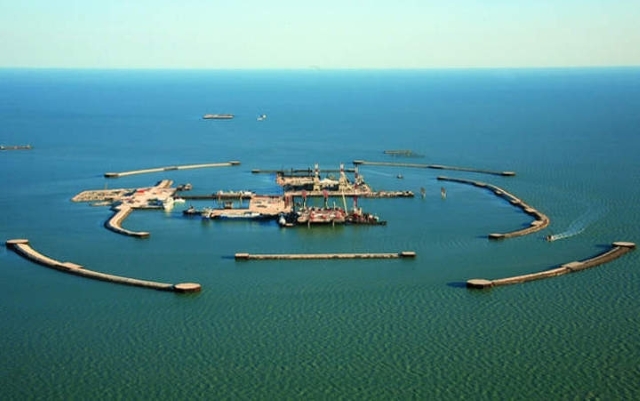The Kašagan oil wells and Russia's sights on Central Asia
Kazakhstan is seeking more than 0 billion in foreign funding for the exploitation of fields on the Caspian. But Moscow does not fail to mention often that its northern territories are 'originally Russian' and Russian-speaking, as is claimed for the Donbass.
Moscow (AsiaNews) - The course of the war in Ukraine seems to be turning increasingly in favor of Russia, which is exploiting its superiority in the number of soldiers and weapons to advance along the Donbass front.
This situation raises considerable concerns in the states of Central Asia and the Caucasus, fearing that the Russians may consider their territories as the next stages in the reconstitution of the ex-Soviet "Russian world".
Of all the countries most at risk is undoubtedly Kazakhstan, which the Russian leadership often reminds that its northern territories are "originally Russian" and Russian-speaking, as is stated for Donbass.
There is much discussion in the media about the economic plans of Astana, which is trying to obtain foreign funding of over 150 billion dollars for the exploitation of the new Kašagan oil wells on the Caspian, in order to be able to support the needs imposed by the long period of major floods , but also to ensure Kazakhstan's security systems.
On the Japanese agency Nikkei Asia, an observer, Hirojuki Akita, recalls that in the corridors of the security conference in Tbilisi last March many members of the delegations of the post-Soviet countries pointed out to their Western partners the dangers of a Russian war turn towards the East, explaining the reasons for the great prudence in the foreign policy of their governments, trying in every way not to irritate the masters in the Kremlin.
According to Akita the situation is changing quite radically. and, and the Central Asians' attempts to make pacts with the Westerners could now run aground, especially if at the end of the year America were to choose Donald Trump, who is against supporting Ukraine.
Putin's pressure on these countries is increasing - declared various sources reported by the Japanese journalist - so that they "recognize the priority of relations with Russia". The Russians could hardly invade Kazakhstan with the same arrogance with which they attacked Ukraine, but they could "destabilize" this and other countries, interfering in their internal affairs with political and propaganda tools.
According to the former Minister for European Integration of Georgia, Aleks Petriašvili, “if Russia wins in Ukraine, there is no doubt that it will try to reaffirm its dominant role in all post-Soviet blocs”, and in his opinion this it will particularly concern Georgia and Moldova, as well as the Asian territories. And if he were to continue on the path of reconstituting the Soviet space, "then he would also turn towards the Baltic countries".
According to Upstream Online, an agency specializing in information on the oil sector, Astana's plans for the Kašagan site will therefore be decisive for future developments. The 150 billion dollars would be compensation for international disputes which could also lead to arbitration appeals, as also confirmed by Bloomberg who speaks of 138 billion to be obtained for "loss of profit" compared to the costs of oil extraction in the panorama of international agreements.
The Italian representatives of Eni, which are part of the North Caspian consortium - interested in the Kašagan wells together with Shell, TotalEnergies, ExxonMobil, China National Petroleum and Inpex - inform that the Astana government has actually started an arbitration procedure, even if they do not consider his claims well founded.
The underlying issue, as Bne Intellinews writes, is that Kazakhstan "is the preferred place for many Russian companies to find ways to circumvent Western sanctions", a practice from which the Astana government claims to be foreign, but which in fact is crucial for the future development of international relations.
The war between Europe and Asia is not only taking place in the trenches of Donbass or towards the vast steppes of Kazakhstan, but also and above all in the areas of large-scale productive, economic and financial affairs.







.png)










